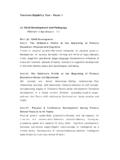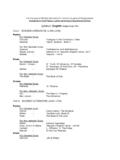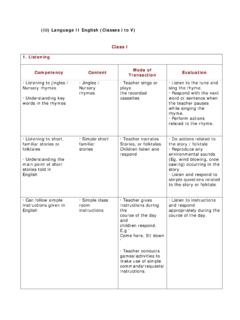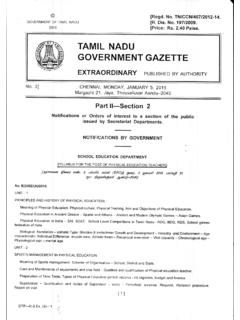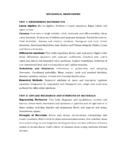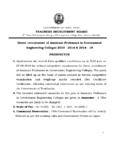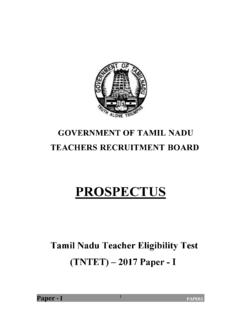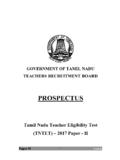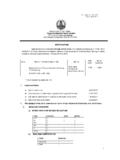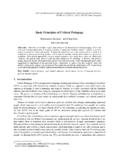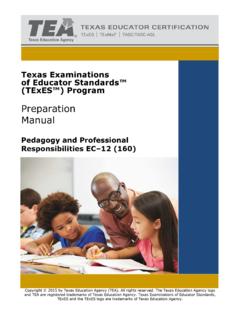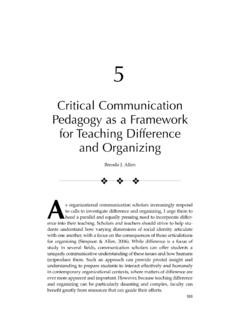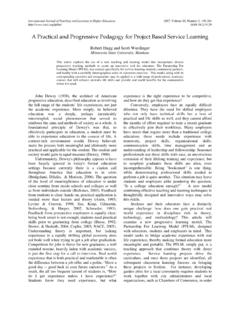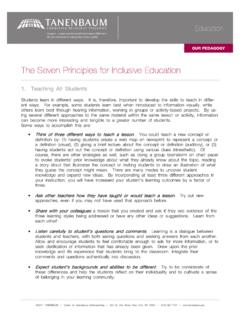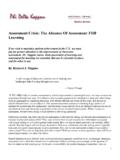Transcription of TET Paper 2 Child Development & Pedagogy - t n
1 Teachers Eligibility Test - Paper 2. i. Child Development and Pedagogy (Relevant to Age Group 11 14). UNIT I: Nature of Educational Psychology Definition of Psychology Methods of Psychology Branches of Psychology Educational Psychology Definition, Nature and Scope of Educational Psychology: The Learner, Learning Process, Learning Experience, Learning environment, Teacher and teaching . Significance of Educational Psychology to the teacher. Unit II: Human Growth and Development Interaction of Nurture and Nature. Concept, Distinction among Growth, Development and Maturation. General Principles of Growth and Development Characteristics, Dimensions of Development . Physical, Cognitive, Emotional, Social and Moral Phases of Development and Development tasks Infancy, Childhood and Adolescence. UNIT III: Cognitive Development Cognitive Process, Attention Factors relating to attention, Kinds of attention Inattention, distraction and division of attention Span of Attention.
2 Sensation and Perception Factors relating to Perception, Perceptual errors Concept formation Nature and Types of Concepts Piaget's stages of cognitive Development . Bruner's theory Concept maps Imagery Language and Thinking Reasoning and Problem Solving Implications to the teacher. UNIT IV: Social, Emotional and Moral Development Social Development Factors of Social Development Social Maturity Erikson's stages of Social Development Emotional Development meaning Positive and Negative emotions . Emotional control and maturity Place of emotions in life . Significance of Emotional Intelligence Moral Development . Kohlberg's stages of Moral Development . UNIT V: Learning Nature and importance of learning Individual differences in learning Learning Curves Factors influencing the learning . theories of learning Conditioning : Classical and Operant (Pavlov, Skinner), Trial and Error (Thorndike), Learning by Insight (Kohler).
3 Transfer of Learning Learning by Imitation Levels of Learning: Gagne Remembering and Forgetting : Curve of forgetting. UNIT VI: Intelligence and Creativity Nature of Intelligence Distribution of Intelligence Theories of Intelligence: Single, Two factor and Multifactor theories, Guilford's structure of the Intellect, Gardner's Multiple Intelligence Theory . Constancy of IQ Assessment of Intelligence Users of Intelligence tests. The Process of Creativity- Creativity and Intelligence Identification and promotion of Creativity Thinking: Convergent and Divergent thinking. UNIT VII: Motivation and Group Dynamics Motivation and Learning Kinds of Motives Theories of Motivation: Maslow's hierarchy of needs Role of Rewards and Punishments Level of Aspiration Achievement Motivation: Techniques of Developing Achievement motivation Motivation in the classroom context Competition and Co-operation Leadership Traits Leadership Styles and Classroom Climate.
4 UNIT VIII: Personality and Assessment Meaning and Definitions of Personality Major Determinants of Personality Theories of Personality Type, Trait, Type and Trait, Psychoanalytic Assessment of Personality: Projective and Non projective Techniques Aptitude concept, types and measurement. Attitude and interest concept and measurement . Integrated Personality. UNIT IX: Mental Health and Hygiene Concept of Mental health and Hygiene Conflict and Frustration . Unrest Adjustment and Mal adjustment Causes of Maladjustment Defence Mechanisms Mental Illness. Juvenile Delinquency. Promotion of Mental health of students and teachers. UNIT X: Guidance and Counselling Nature, Types and Need of Guidance and Counselling Educational, Vocational and Personal. Identification of Children with Counselling Needs Counselling Techniques: Individual and Group Techniques Guidance for the children with Learning Difficulties, Under Achievers and Gifted.
5 _____.
